- Home
- Anne Stuart
The Widow Page 3
The Widow Read online
Page 3
She was in a hurry to get there. The roads were empty, winding through the hills, and she knew all the shortcuts. Tomorrow, or later, she would go out again in the car, taking her time, revisiting the countryside that she’d loved so well. For now it was La Colombala that mattered, and the people there who depended on her.
The town of Geppi hadn’t changed in the years since she’d turned her back on it, but then, why should it? It had stayed the same for hundreds and hundreds of years—why should she think it would fall to pieces because she’d abandoned it? It was midday when she drove through the perfect little medieval town, peaceful in its serenity. All was still and quiet. The people of Geppi still observed the ancient custom of the midday rest, unlike their more cosmopolitan brothers.
The long, twisting road up to La Colombala hadn’t changed, either. The ancient cypresses must have grown taller, the stone fences must have crumbled further, but if so she couldn’t tell. The road was bumpy, rutted, with weeds growing in the middle—that was a change she recognized. Pompasse had adored his Rolls-Royce, and he’d loved his low-slung Ferrari. He always insisted the drive be kept in impeccable shape so as not to damage the delicate undercarriage of his sports car. The Alfa scraped bottom at one point, and Charlie winced in sympathetic pain. Why had he stopped caring?
She realized she was clutching the small steering wheel so tightly that her hands hurt. She loosened them, taking a deep, calming breath, and turned off the radio. The sudden silence was shocking—just the sound of the wind through the olive trees, riffling the leaves.
She drove past the stone cottages, the farm buildings and winery that had been abandoned before the war. And then up and around the curving drive until she came to the villa itself, bathed in warm, golden light. La Colombala. The towers of the abandoned church loomed behind it, casting shadows in the bright Tuscan sunlight. It took her breath away.
It was the same, and yet different. The main section was two storeys high, made of a whitewashed stone, and two single-floor wings spread out on either side. One was for the kitchen and the servants, the other was Pompasse’s studio. The doors and windows to the house stood open, but the studio was shut tight, and Charlie felt a tiny clenching in her heart.
He’d been an old man. A difficult, impatient, tempestuous old man, who’d never paid any attention to his health. He’d smoked like a chimney, he’d drunk too much, and his formidable temper had set his blood pressure soaring. She’d loved him once, and she could mourn the loss of his talent. Although, there had been times when she suspected he’d lost his talent long ago.
She switched off the car and sat there in the stillness. No one had heard her arrive, which suited her. Whoever was in residence was sleeping off the heat of the midday sun like all good Tuscans.
She climbed out of the car and stretched in the sunlight like a cat, pulling off the scarf that had restrained her hair. She was wearing jeans and a merino wool sweater. Pompasse would have been horrified. He’d always preferred to see her in designer clothes. He would take some comfort in the knowledge that the sweater was Versace.
She was about to head toward the house when something caught her eye. She looked to the left, where the vineyards stretched out in the sunlight. It was October—it should be harvest time, or past, yet the grapes still hung heavy on the branches. Pompasse had been dead for less than a week—the neglect around the villa had been going on for far longer.
Someone was moving out there among the vines. Pompasse used to love to walk among the grapes, pretending he was a master winemaker. It always used to amaze Charlie—that one of the world’s great artists would want a fantasy life as another kind of artist.
It wasn’t Pompasse out there, she told herself. Pompasse was dead, gone forever. But it was definitely a man, and even though he’d disappeared around a corner she knew it hadn’t been Tomaso. This man was younger, taller. And Pompasse had seldom tolerated any men in his household of women.
Without stopping to think about it Charlie headed into the vineyard. She followed the scent of fresh cigarette smoke. Cigarette smoke was an odd thing—dead nasty when it lingered, but actually pleasant when it was fresh. Only Pompasse had smoked at La Colombala, though Tomaso occasionally indulged in a pipe. Pompasse had considered it a filthy habit, but he himself was above his self-imposed rules. But he was dead now and she no longer had to live in a haze of smoke. Still, the fresh scent of it made her feel oddly nostalgic.
The sun was hot overhead, despite the fact that autumn was well advanced. The merino sweater was too warm, the sun too bright, and she’d left her sunglasses in the rented Alfa. She was half tempted to go back for them, when she turned the corner to come face-to-face with a mysterious stranger.
3
Charlie stopped short of barreling into him, just barely, doing her best to put a pleasant expression on her face. If she’d learned anything from Olivia it was perfect manners.
“Jesus! You scared me! Who the hell are you?” the stranger demanded.
She halted, astonished. “Charlie Thomas,” she said politely. She held out her hand, and the rings glinted in the Tuscan sunlight as she peered at him. “And you are?”
The stranger’s manners left something to be desired. He just looked at her, and at her proffered hand, before he finally reached out and took it in a quick, bone-crushing shake. “Connor Maguire,” he said in a cool voice. “Insurance consultant.”
“I didn’t realize they’d sent someone out already,” she said. Italy must have changed more than she’d realized in the past five years. Business in Tuscany usually moved at a snail’s pace.
“With an estate of this complexity they wanted someone on the scene as soon as possible,” he said. It was reasonable enough, and yet she wasn’t sure she believed him. He had some sort of accent—Australian or New Zealand rather than British. Odd, but she’d assumed the insurance people would be Italian. On top of that, he looked strangely familiar. She’d never met the man before in her life—she knew that with a gut-deep certainty. He wouldn’t be a man who was easy to forget.
“That’s good,” she said vaguely. “I haven’t been to the house yet so I hadn’t realized anyone was here.”
“You’re the widow,” he said.
“We were separated,” she said, determined to be pleasant. She was still having a hard time dealing with the fact that she’d never been divorced at all, but she wasn’t about to share that information with a stranger. “But apparently I’m the executor of his will and as such you’ll be dealing with me.”
He simply raised an eyebrow at that. Connor Maguire was a far cry from anything she’d imagined an insurance adjuster to be, and she wondered how the household had reacted to him. He was young—mid-thirties, Charlie guessed, with shaggy dark hair that was badly in need of a cut, several days’ worth of stubble, and a rumpled suit on a strong-looking body. Just the sort of man she found least attractive. He couldn’t be much more than six feet tall—she liked men who towered over her own substantial height. She liked slender, elegant men with long, narrow fingers and ascetic faces and cool, charming voices. She liked men with experience and patience and charm, men who didn’t demand or paw. The man in front of her didn’t look like he possessed any of those finer qualities. She found him…unsettling.
“Apparently?” he echoed. “I would have thought someone would have figured that out by now.”
Charlie’s smile stiffened. “Pompasse was an artist, not a business man. Apparently he had a lawyer here in Tuscany…”
“There’s that ‘apparently’ again.”
Charlie’s smile vanished. “If this is an inconvenience you could always return once the estate is settled,” she said, her voice cool. She didn’t like men like him, men so bristling with masculinity that they positively reeked of testosterone.
“My schedule doesn’t work that way,” he said. “I’m here now, and I’ll leave when I’m finished.”
He had very dark eyes in a tanned, lined face. He looked like a man w
ho worked for a living, worked hard, and the eyes were those of a much older man. One who had seen too much and wished he hadn’t.
“And exactly what is your job, Mr. Maguire?”
“Cataloging his paintings, his drawings, anything of value. The usual,” he said vaguely.
“And how long do you anticipate it will take you?”
He didn’t even blink. “As long as it needs to. The government doesn’t like to be cheated of inheritance taxes, and the estate needs to be properly valued. Of course, there’s that small complication that you’re no doubt aware of. A number of your husband’s most valuable paintings have vanished, as well as all the records he kept of his work. The government is very interested in finding them as soon as possible.”
“Which government?”
He shrugged. “Take your pick. There are at least three involved in your husband’s estate. Italy, France and the U.S., and probably others besides. What is this, a job interview?”
Charlie blinked. Maguire’s attitude was bordering on rude—surprising for someone in his position. “I beg your pardon?”
He snorted with amusement. “What, you don’t like my manners? Sorry, but I’m not about to waste my time on polite chitchat. I’ve got a job to do, and you’re not the one who hired me. I’m staying here at the villa until my work’s done and then I’ll be out of your hair. In the meantime, just ignore me.”
Charlie took a deep, calming breath. She didn’t want or need this complication, but she’d survive it. She’d survive anything. “I’m sure we’ll manage to get along just fine. As for ignoring you, that’ll be pretty much impossible. It’s going to be a full house in a couple of days, and you’ll have to make the best of it. My mother and my fiancé will be arriving soon and they’ll each need their own rooms. As I remember, the villa isn’t equipped for that many visitors.”
“Your fiancé? You’re not wasting any time, are you?”
“Mr. Maguire…”
“Just Maguire, sweetheart,” he said. He cocked his head, looking at her, and she felt an odd little shiver of discomfort slide down her backbone despite the heat of the sun overhead. “It’s none of my concern. I just wonder why your fiancé doesn’t share your room.”
“If that were any of your business I’d be certain to tell you,” Charlie said. “In the meantime, why don’t you attend to your business instead of wandering through the vineyard?”
“Can’t a man take a break?” he inquired in a low growl. “All work and no play makes Jack a dull boy.”
She looked at him. Connor Maguire was never going to be considered dull by any stretch of the imagination. “Please play on your own time, not mine,” she said in a cool voice. “What’s your estimate on the value of his estate?”
“What’s the big hurry?”
“I just want to get the estate settled and go back to New York.”
“That’s where you live?”
“That’s where I live. I own a restaurant there,” she added, then could have kicked herself. What in heaven’s name was she doing volunteering information to a man like him?
“You cook?” He sounded completely skeptical.
“As a matter of fact, I do,” she replied. “On my chef’s days off.”
“Fancy that,” he murmured, clearly unimpressed. “Somehow you don’t strike me as the practical type.” He dropped his cigarette and stubbed it out beneath his scuffed shoes. He glanced up and met her gaze. “I suppose you’re going to tell me you don’t want me to smoke?”
“How did you guess?”
“You look the type,” he said enigmatically.
“What type is that?”
“Someone who doesn’t want a stray ash marring the perfection of her existence.”
She smiled wryly. “La Colombala has fallen to pieces in the last few years, Mr. Maguire, and even before then I hardly expected perfection. I live in Manhattan, remember? Full of dirt and drugs and crime.”
“But I imagine you’re safely isolated from all that. You strike me as someone who keeps herself well guarded from the ugliness of real life.”
“I wish.”
“Well, Mrs. Pompasse, you happen to be in luck. I was planning on quitting when I finished the pack, and that’s just happened. You see before you a changed man.”
Mrs. Pompasse. It certainly wasn’t the first time she’d heard that, particularly in the last seventy-two hours with the god-awful press hammering at her every chance they got. But it sounded strange, hostile, terribly wrong in Maguire’s rough voice.
“We were separated,” she said again. “I go by my maiden name.”
His entire bearing suggested he wasn’t particularly interested, but he simply nodded. “I’ll go back to work, then,” he said finally.
A relief, and she should have let him go. But some inner demon stopped her. “How long do you think it will take you?”
“What?”
“To catalog his estate,” she said patiently.
“If I could find your husband’s records I would be out of here already. At this point, it appears that as few as three paintings are missing, maybe as many as a dozen, but without the journals I can’t tell for sure. He may have sold some. There may be others the art world isn’t even aware of.”
“I doubt it,” Charlie said. “Pompasse didn’t believe in hiding his light under a bushel. When he completed a painting the world was informed.”
“Didn’t care much for the old geezer, did you?”
Charlie repressed her start of surprise. Maguire was rude and abrasive—hardly the type of man suited for this kind of diplomatic work.
“I loved my husband, Mr. Maguire. I don’t care much for you.”
If she’d hoped to annoy him even half as much as he was annoying her, she was doomed to failure. He merely nodded, but there was a faint gleam of amusement in his dark eyes.
“So where do you think his journals are?” he said.
“I haven’t the faintest idea. If I were you I’d be more interested in the lost paintings than the journals. They’re worth more.”
“Maybe,” Maguire said. “I asked the housekeeper, but she says she has no idea where they could be. As far as I can figure out either he destroyed them, or one of his harem did.” He let his dark eyes sweep over her. “This place is full of women. No one ever leaves him, do they?”
“I left him,” Charlie said, knowing her voice sounded hollow.
“But you came back.”
“To bury him, Maguire. And then I’m gone once more.”
“Who’s his heir?”
“Presumably his widow.”
“You?” he said.
“Me.”
“You don’t sound very excited about the idea. Which is a good thing—at this point it doesn’t look like you’re getting much. Any reason why he might have been selling things off? Giving them away?”
“Not that I know of.”
“I guess I can assume you didn’t have anything to do with the disappearance of his valuables. Since I got here before you.”
“His valuables?” she echoed, startled. “What about the silver? And I left behind a fair amount of jewelry—it must still be here.”
She’d managed to startle him. “The jewelry’s already yours. You don’t need to pay inheritance tax on it.”
“I gave it back to him.”
“Tell it to the tax people, lady. Not me.”
“I thought you were the tax people.”
“I’m an independent insurance consultant. I just make lists.”
“You don’t look like a list-maker to me.”
She could have bit her tongue the moment the words were out of her mouth. His eyes met hers, and for the first time she realized they weren’t brown, but a very dark green, so dark they were almost black. He took a step closer to her, and the bright sun overhead seemed to dance behind a cloud.
“What do I look like to you, lady?” His voice was soft, rough, earthy, and he was close enough to touch. She didn’t
like touching people. Especially not men like Maguire.
But she wasn’t going to flinch. “A man of action,” she said coolly. “Not a man of words.”
His laugh was short, abrupt. “Now, that’s where you couldn’t be more wrong, Mrs. Pompasse. I’m very much a man of words.”
“Don’t call me that,” she said.
“Bothers you, does it? You call me Maguire, I’ll call you Charlie. When’s the funeral?”
“We already had one service in New York, and I believe there was one in Florence and Paris as well. We’ll be having a simple committal service here on Saturday.”
“He’s not buried yet?”
“His ashes will be buried in the vineyard as he requested,” she said stiffly.
“I thought the old man was Catholic. No cremation, no unsanctified ground.”
“You’re Catholic, Maguire? Somehow that surprises me.”
“I’m about as lapsed as you can be, lady.”
“So was Pompasse. If his life hasn’t condemned him to an eternity in hell then I doubt simply being buried the wrong way will do it. At least, not in my beliefs.” Again, she’d said too much to a stranger.
But he simply nodded, seemingly unsurprised. “I’ll tell you what. I’ll try to have the inventory done by Saturday. That way I’ll leave right after the committal service and you won’t have to put up with me anymore. Of course, then you’ll be dealing with the tax people and you might end up thinking I wasn’t so bad, after all.”
“Saturday?” she echoed. “I’m expecting a full house by then. My mother, my fiancé…” The words trailed off before his implacable gaze. He really was the most annoying man, Charlie thought, and that was saying a lot, considering she’d lived with Pompasse for eight years. And she couldn’t get over the irrational feeling she’d seen him before.
“If things get too crowded I can always camp out in the studio. Or the ruins of the old church. I’m an amenable guy.”
Charlie resisted the impulse to snort. “The studio is too crowded…”

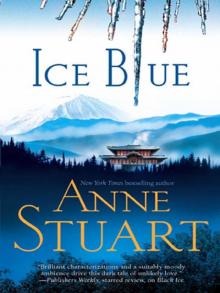 Ice Blue
Ice Blue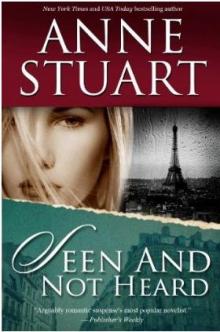 Seen and Not Heard
Seen and Not Heard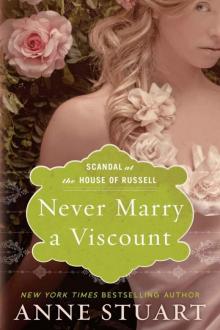 Never Marry a Viscount
Never Marry a Viscount Heartless
Heartless The Devil's Waltz
The Devil's Waltz Hidden Honor
Hidden Honor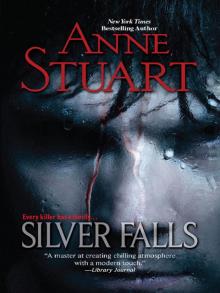 Silver Falls
Silver Falls Fire and Ice
Fire and Ice Nightfall
Nightfall Never Trust a Pirate
Never Trust a Pirate The Soldier and the Baby
The Soldier and the Baby Still Lake
Still Lake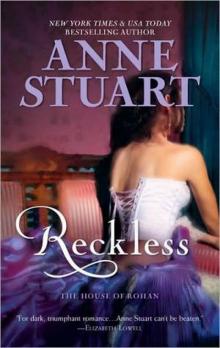 Reckless
Reckless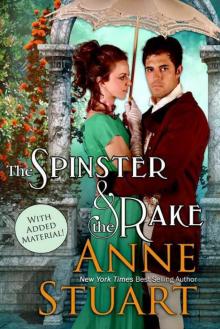 The Spinster and the Rake
The Spinster and the Rake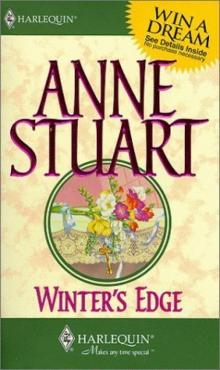 Winter's Edge
Winter's Edge At the Edge of the Sun
At the Edge of the Sun Into the Fire
Into the Fire Night of the Phantom
Night of the Phantom Ritual Sins
Ritual Sins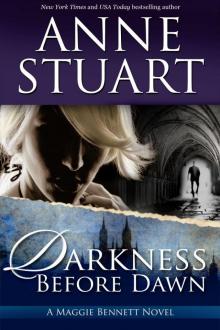 Darkness Before the Dawn
Darkness Before the Dawn Against the Wind
Against the Wind Ruthless
Ruthless The Catspaw Collection
The Catspaw Collection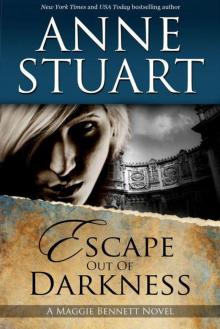 Escape Out of Darkness
Escape Out of Darkness The Widow
The Widow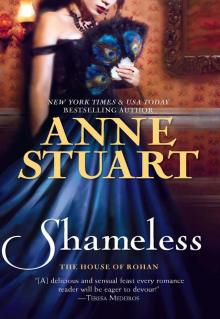 Shameless
Shameless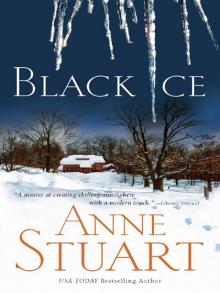 Black Ice
Black Ice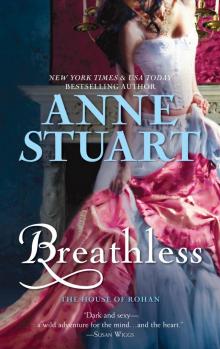 Breathless
Breathless Shadows at Sunset
Shadows at Sunset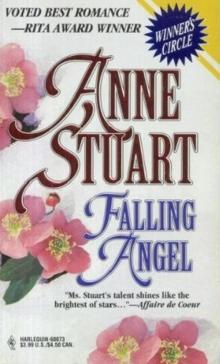 Falling Angel
Falling Angel Housebound
Housebound Cold as Ice
Cold as Ice The Wicked House of Rohan
The Wicked House of Rohan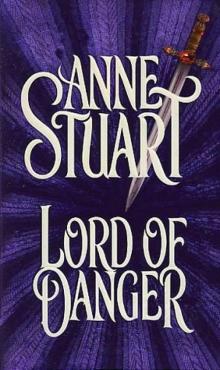 Lord of Danger
Lord of Danger The High Sheriff of Huntingdon
The High Sheriff of Huntingdon Wildfire
Wildfire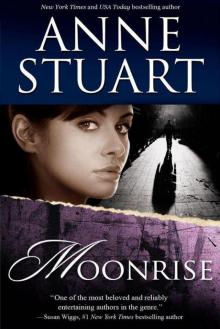 Moonrise
Moonrise The Demon Count's Daughter
The Demon Count's Daughter Date With a Devil
Date With a Devil To Love a Dark Lord
To Love a Dark Lord Driven by Fire
Driven by Fire Special Gifts
Special Gifts Ice Storm
Ice Storm Shadow Lover
Shadow Lover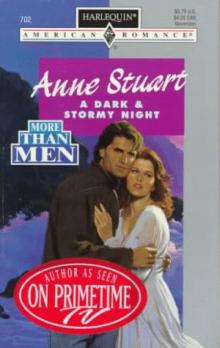 A Dark & Stormy Night
A Dark & Stormy Night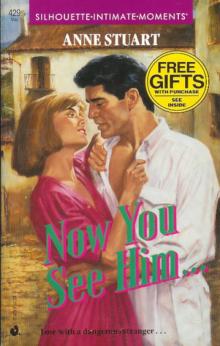 Now You See Him...
Now You See Him...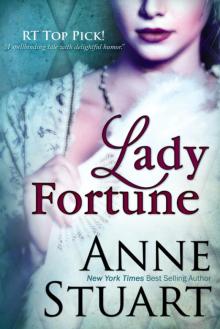 Lady Fortune
Lady Fortune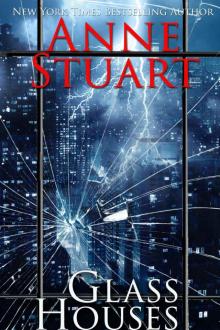 Glass Houses
Glass Houses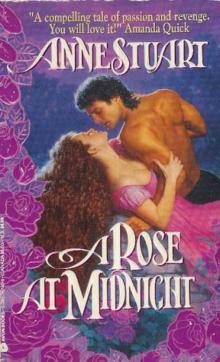 A Rose at Midnight
A Rose at Midnight Prince of Swords
Prince of Swords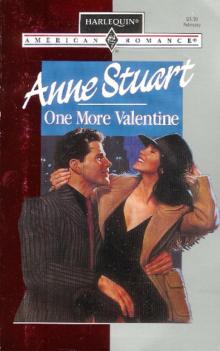 One More Valentine
One More Valentine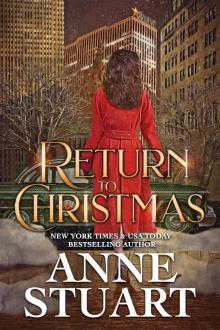 Return to Christmas
Return to Christmas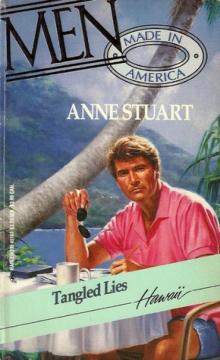 Tangled Lies
Tangled Lies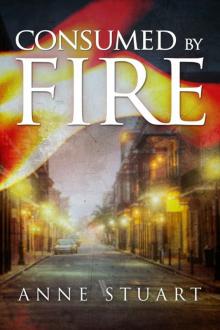 Consumed by Fire
Consumed by Fire The Fall of Maggie Brown
The Fall of Maggie Brown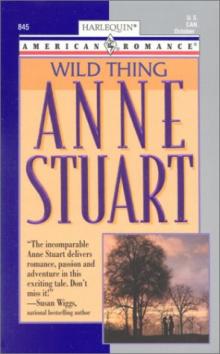 Wild Thing
Wild Thing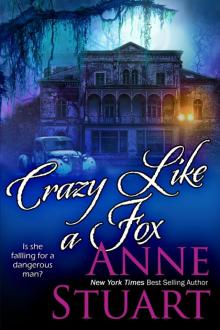 Crazy Like a Fox
Crazy Like a Fox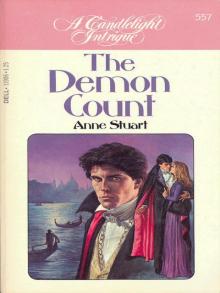 The Demon Count
The Demon Count Prince of Magic
Prince of Magic Wildfire (The Fire Series Book 3)
Wildfire (The Fire Series Book 3)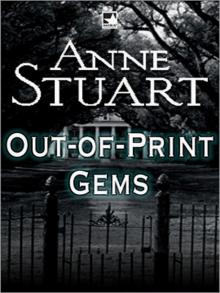 Anne Stuart's Out-of-Print Gems
Anne Stuart's Out-of-Print Gems Shadow Dance
Shadow Dance Under an Enchantment: A Novella
Under an Enchantment: A Novella Demonwood
Demonwood Blue Sage (Anne Stuart's Greatest Hits Book 3)
Blue Sage (Anne Stuart's Greatest Hits Book 3)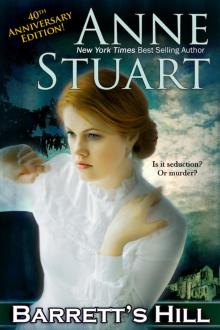 Barrett's Hill
Barrett's Hill Angel's Wings (Anne Stuart's Bad Boys Book 5)
Angel's Wings (Anne Stuart's Bad Boys Book 5)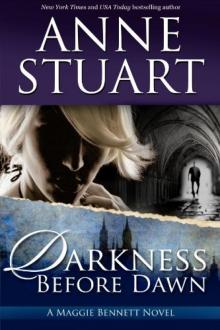 Darkness Before Dawn
Darkness Before Dawn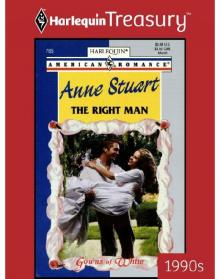 The Right Man
The Right Man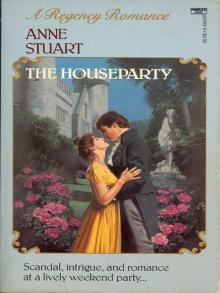 The Houseparty
The Houseparty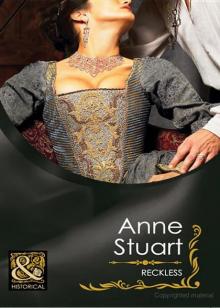 Reckless_Mills & Boon Historical
Reckless_Mills & Boon Historical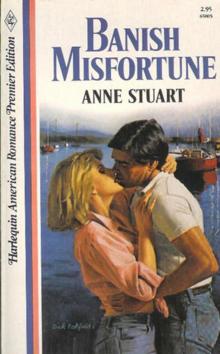 Banish Misfortune
Banish Misfortune Angel's Wings
Angel's Wings Chain of Love
Chain of Love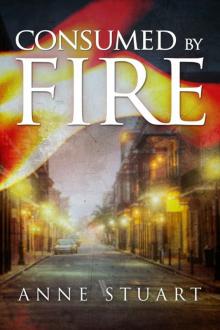 Consumed by Fire (The Fire Series)
Consumed by Fire (The Fire Series) Partners in Crime (Anne Stuart's Bad Boys Book 4)
Partners in Crime (Anne Stuart's Bad Boys Book 4) The Soldier, The Nun and The Baby (Anne Stuart's Greatest Hits Book 2)
The Soldier, The Nun and The Baby (Anne Stuart's Greatest Hits Book 2)